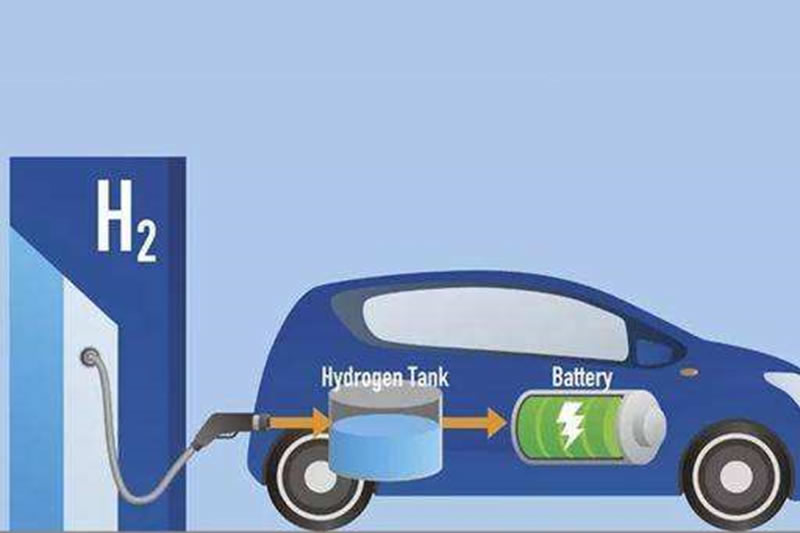-
Call Us On:
+86-577-61675999
+86-15355776033 -
Send us a Mail:
- Get a Quote
+86-577-61675999
+86-15355776033

1)Hydrogen energy is the basis for the development of fuel cells
As an energy carrier, hydrogen will completely change the traditional energy structure. Hydrogen energy and fuel cell industries are one of the hot spots in the current strategic emerging industry competition. The application of fuel cell vehicles is a breakthrough in energy transformation and upgrading, and will promote human society to gradually enter the hydrogen economy era. The primary purpose of the application of hydrogen energy and fuel cells is to solve the problem of the unbalanced distribution of my country's energy structure in space and time, and solve my country's energy supply security and reduce carbon emissions by making full use of renewable energy and other new and clean energy sources. The application of hydrogen energy is not only in the transportation industry, but also has wide application value in construction, chemical industry and many other industrial fields. At present, hydrogen energy and fuel cells have been adopted by developed countries such as Europe, the United States, Japan, South Korea and other developed countries as a new generation of energy strategic technologies leading industrial transformation.
2)Fuel cell technology is an important direction for power transformation
Although fuel cell vehicles are considered to be the ultimate development direction of automobiles on many occasions, many new technologies will appear in the future development. It is too early to make a conclusion of the "ultimate". Judging from the current technical level, the power generation efficiency of fuel cells in the field of vehicles is only 40% to 50%, mainly to solve the problem of energy safety and clean utilization, but it cannot solve the problem of high efficiency utilization of energy. Fuel cell is currently the main method for efficient use of hydrogen energy. As a vehicle power source, it has significant advantages in high-power, long-distance and other application scenarios. It is considered to be the new energy technology with various performance indicators closest to traditional power. It is vehicle power The important development direction of transformation, the market potential is huge.
3)The commercial application of fuel cell vehicles still faces challenges
Fuel cell vehicles have become an important strategic industry in many countries. my country has also issued a series of supporting policy documents and formulated a roadmap for industrial development. However, the development of industrial chains and infrastructure such as hydrogen production, storage and transportation, and refueling has become a constraint. The main bottleneck in the commercial application of fuel cell vehicles is not enough to support the rapid development of the industry. At present, my country’s fuel cell technology bottlenecks are mainly in two aspects. One is the cost, life, and cold start of fuel cell stacks, and the second is the cost, safety, and density of high-density hydrogen storage, hydrogen refueling station construction, and hydrogen storage. Problems such as storage and transportation and low-cost large-scale hydrogen production need to be solved urgently. Hydrogen energy and fuel cell industrial chain clusters have been initially formed in my country. At present, the relatively fast-developing regions mainly include Guangdong, Jiangsu, Shanghai and other places. Fuel cell vehicles are a breakthrough in the innovation and development of vehicle power. Globally, the future market forecasts for fuel cell vehicles are relatively consistent: by 2030, fuel cell vehicles will achieve true marketization and large-scale applications, and they may be applied by 2050. Bring qualitative changes to the entire automotive market.
4)Internal combustion engine technology has important value to the fuel cell industry
Fuel cells are similar to internal combustion engines in terms of structure, technology, and use. The two not only have a large number of common technologies, but also a large number of common components. At present, the development of internal combustion engine technology is much more mature than that of fuel cells. The advanced technology of internal combustion engines has very high application and reference value in the field of fuel cells. Therefore, companies with a background in the internal combustion engine industry are the most competitive for fuel cells. Many challenging technical barriers faced by fuel cell technology at this stage can be overcome by using similar technologies of internal combustion engines. For example, the turbocharger technology of internal combustion engines can be used in the air compressor of fuel cell systems. Fuel injection technology is effective in reducing hydrogen. Application in the field of pressure, ejection or circulation. Of course, these technologies also need to be changed when they are used in fuel cell systems, but the application of internal combustion engine technology in the fuel cell field is worth exploring, and it is believed that it can provide strong support for the development of the fuel cell industry.
For more information